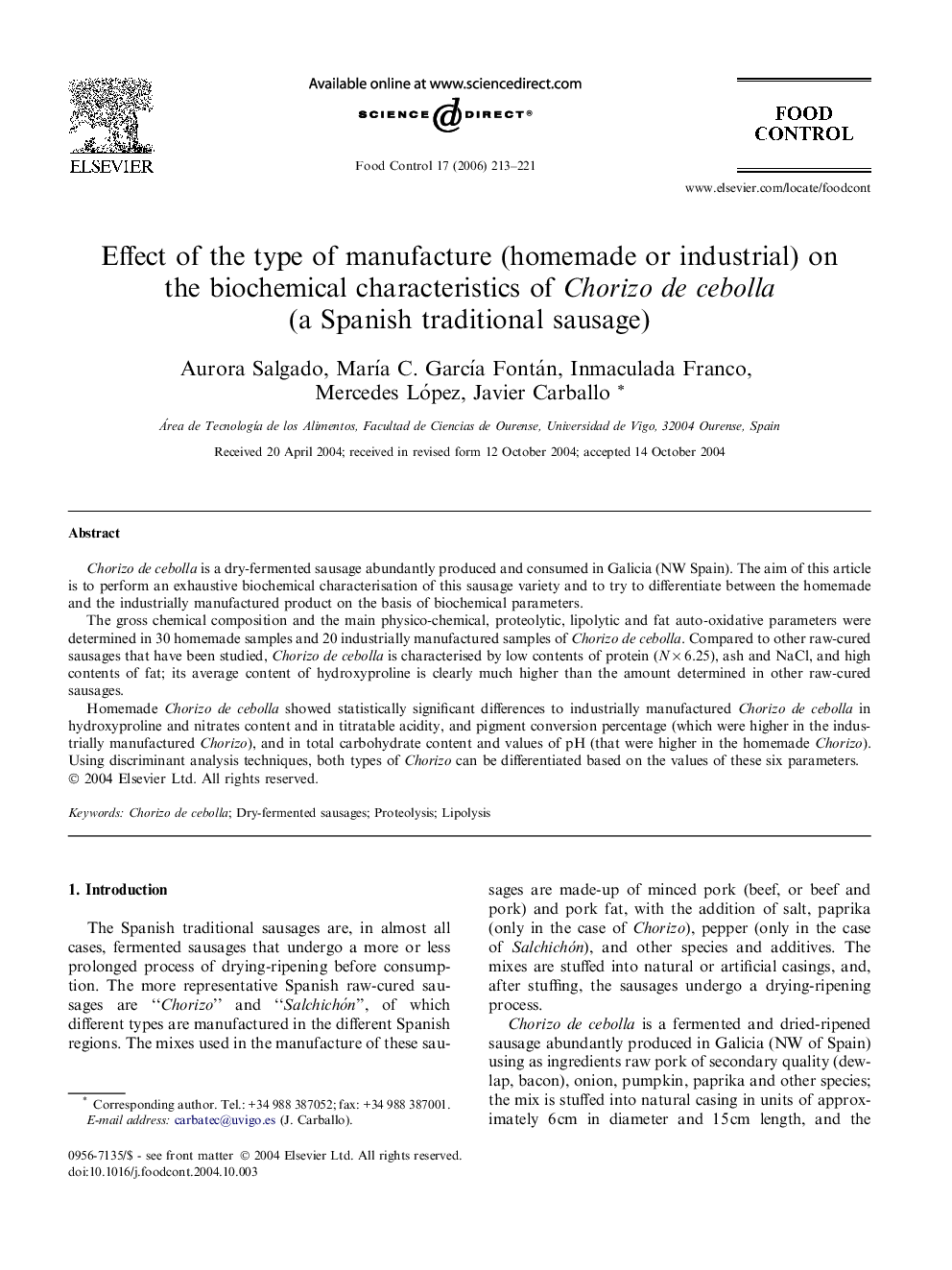| Article ID | Journal | Published Year | Pages | File Type |
|---|---|---|---|---|
| 4560848 | Food Control | 2006 | 9 Pages |
Chorizo de cebolla is a dry-fermented sausage abundantly produced and consumed in Galicia (NW Spain). The aim of this article is to perform an exhaustive biochemical characterisation of this sausage variety and to try to differentiate between the homemade and the industrially manufactured product on the basis of biochemical parameters.The gross chemical composition and the main physico-chemical, proteolytic, lipolytic and fat auto-oxidative parameters were determined in 30 homemade samples and 20 industrially manufactured samples of Chorizo de cebolla. Compared to other raw-cured sausages that have been studied, Chorizo de cebolla is characterised by low contents of protein (N × 6.25), ash and NaCl, and high contents of fat; its average content of hydroxyproline is clearly much higher than the amount determined in other raw-cured sausages.Homemade Chorizo de cebolla showed statistically significant differences to industrially manufactured Chorizo de cebolla in hydroxyproline and nitrates content and in titratable acidity, and pigment conversion percentage (which were higher in the industrially manufactured Chorizo), and in total carbohydrate content and values of pH (that were higher in the homemade Chorizo). Using discriminant analysis techniques, both types of Chorizo can be differentiated based on the values of these six parameters.
